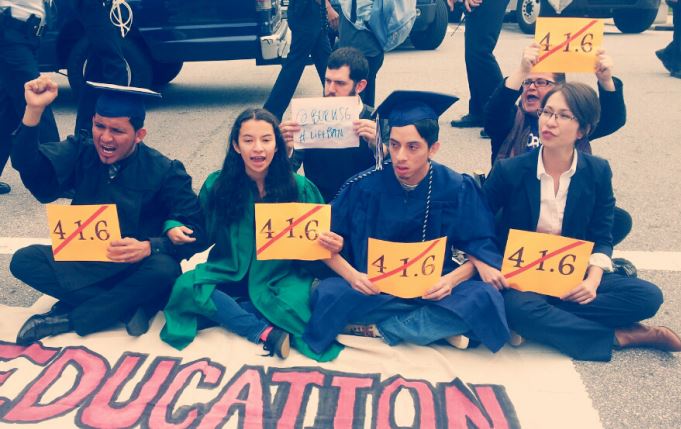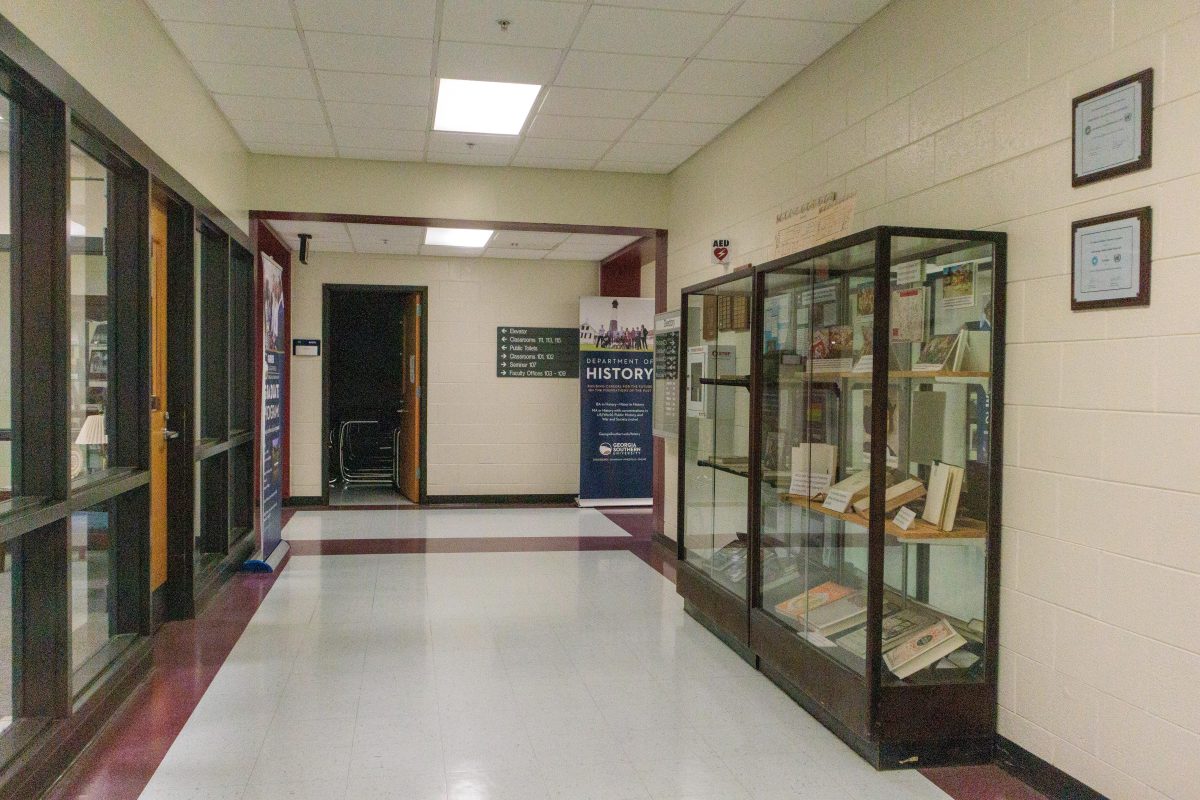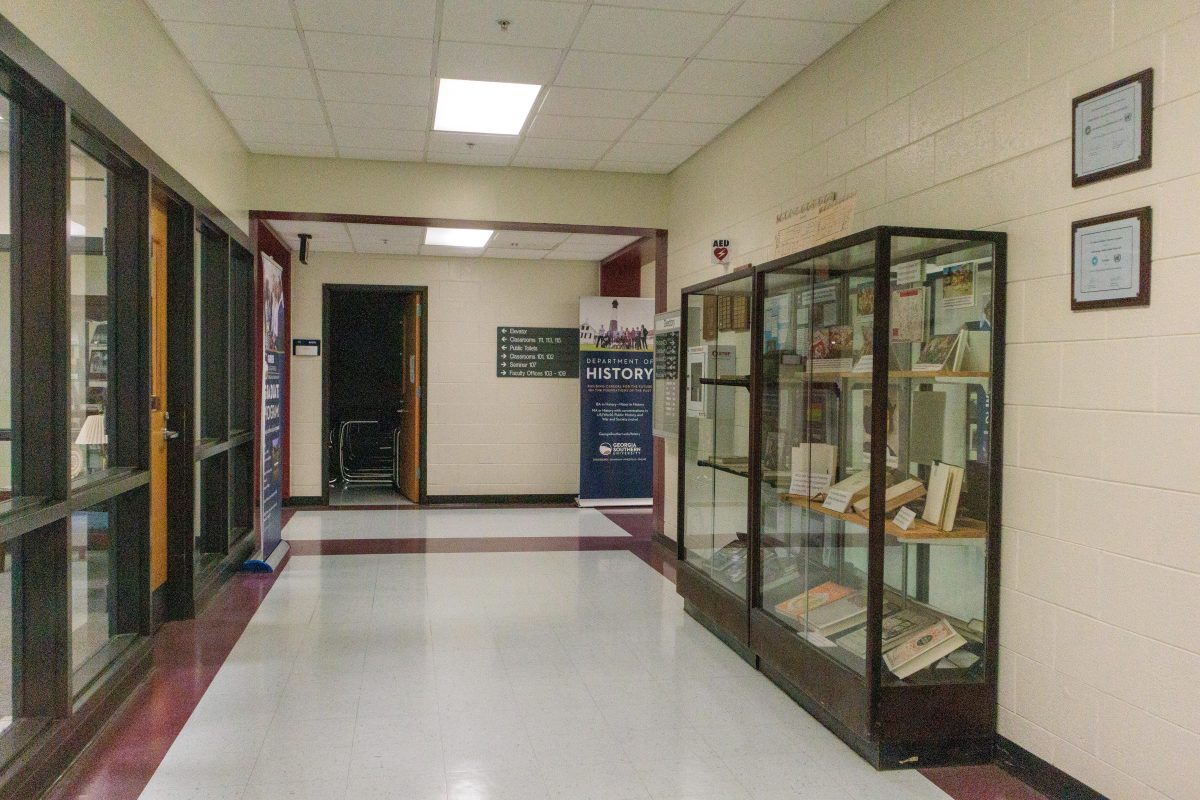
Opinion piece by Edna Trujillo
Children usually do what parents ask of them, especially small children. When parents say they are moving to another country, the child has to go. This is what has happened to many students in the United States. This is not a path they have chosen; it is something that has been decided for them.
Children then grow up in their new home and they try to succeed in school, having dreams of going to college. Parents constantly remind children they need to get an education and have a better future. Undocumented students are not taught to learn they will face barriers in this country of opportunity. Unfortunately, when these students start applying for colleges in Georgia, the realization comes: they are not as equal as they thought they were.
According to the National Conference of State Legislation, Georgia passed a bill in 2008 making undocumented students, people who entered the United States as infants without authorization, pay out-of-state tuition at all colleges in the state of Georgia. This is a financial barrier for these students. In 2010, another barrier came that disappointed many.
The Board of Regents came up with policy 4.1.6. According to the Georgia Board of Regents policy manual 4.1.6, “a person who is not lawfully present in the United States shall not be eligible for admission to any University System Institution which… did not admit all academically qualified applicants”. This policy banned all undocumented students from the top universities in Georgia. Those universities are: University of Georgia, Georgia Institute of Technology, Georgia State University, Georgia College and State University, and the Medical College of Georgia.
The rational, according to the Board of Regents, is this allows more spots to be available for documented residents of Georgia. This has caused controversy. These schools accept the most qualified. If an undocumented student has tried hard for years to excel in school, why should they be denied the opportunity to attend a competitive school? Whatever student is best qualified should be admitted, regardless of her or his legal status. Another reason listed is these schools were being “swamped by thousands of undocumented students.” Many would agree this is a racist statement going against discrimination laws. There are also statistics that contradicts this statement.
The next reason listed by the Board of Regents is “Georgia taxpayers are paying for these students.” This is a myth for two reasons. First, many undocumented people pay taxes. They receive a Tax Identification number because they do not have a social security number. Saying undocumented people do not pay taxes is relying on stereotypical. Second, undocumented students cannot receive financial aid in the state of Georgia, so no taxpayer money is benefiting these students.
Many students aspire to go to a top university regardless of how they became a part of this country and community. Many have been told about the American Dream, they just were not told that the dream did not include them. The financial burden of this policy leaves many students without the opportunity to receive higher education. Not many can afford the out-of state tuition price tag. The difference between tuitions can be three to four times higher. At Armstrong, for example, in-state tuition is around $3,107 and out-of-state tuition is around $9,360. There are limited scholarships these students can obtain and they are very competitive.
Hope for these students came when the Obama administration worked with
The Department of Homeland Security to pass the bill, Deferred Action for Childhood Arrivals (D.A.C.A). This states that people who came to the United States unauthorized before June 15, 2007 and were present in the U.S. on June 15, 2012 will be able to obtain legal presence if they meet qualifications. The government will grant them two-year work permits. These permits will allow them to obtain social security numbers and a driver’s license. For those two years, they will have legal presence in the country. According to the Department of Homeland Security, these students are now legally present in the United States for the time that they have the permit.
Unfortunately, D.A.C.A did not change anything in Georgia. Students are still being charged out-of-state tuition and are still banned from institutions, even though the government has made these people legal residents and they have a driver’s license, which can be used to verify legal residency for in-state tuition.
Many politicians have said this is illegal and unjust of Georgia Board of Regents. Some students from Georgia Undocumented Youth Alliance filed a lawsuit against the Board of Regents because they will not allow D.A.C.A students to pay in-state tuition. The case was lost in the Georgia Supreme Court and the students are currently working to file lawsuits against individual members of the Board of Regents.
To make a change, people need to be aware this is happening. Conversations must happen. These issues need to be well known. There needs to be a group of people who supports these students. Students that are being affected by these policies need to start raising their voices. Administrations need to know that there are students who are fighting for the policy’s removal.
The fight is not over. It will not be easy. Undocumented students only came to follow their parents and are now working to have a future that is filled with education. Those students who qualified for D.A.C.A should be given equal opportunity, as they are legal residents of this country. Education is a human right that should not be denied to anyone.
If you would like to support the movement, please email: zentenorolando@gmail.com.










